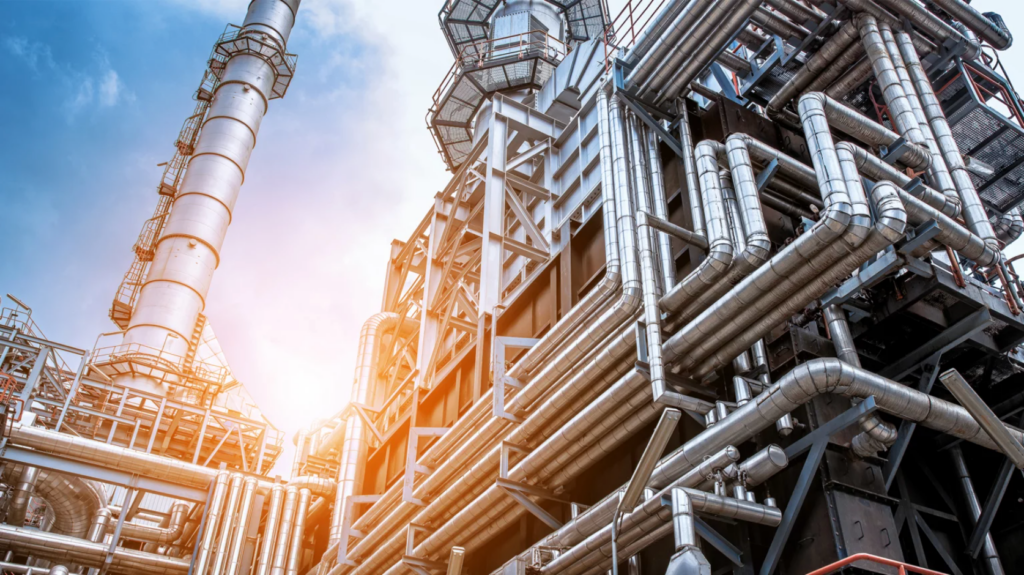Industrial projects are a league of their own. Unlike traditional construction projects, these endeavors demand a higher level of specialization, skill, and precision. Whether it’s constructing a chemical plant, a manufacturing facility, or an oil refinery, the complexity of industrial projects sets them apart. Their success hinges on the ability to coordinate various specialized disciplines seamlessly.
The Necessity of Specialized Knowledge
Industrial projects are intricate systems. They operate at the intersection of engineering, safety regulations, and process requirements that are far more demanding than those seen in residential or commercial construction. Here’s why specialized knowledge is essential.
Engineering Expertise
Industrial construction goes beyond erecting walls or laying roofs. These projects require highly skilled engineers who understand the nuances of industrial systems, including mechanical, civil, electrical, and chemical engineering. They must ensure that pipelines, equipment, and structures can handle high-pressure environments, corrosive materials, and extreme temperatures.
Take, for example, the construction of a petrochemical plant. Engineers must calculate how to manage chemical reactions, ensure proper ventilation, and design systems that prevent leaks or hazardous incidents. Working with industrial construction companies, such as those in Wyoming, tends to make all the difference in achieving operational efficiency while maintaining safety standards.
Navigating Regulatory and Safety Standards
Industrial sites are high-stakes environments with numerous safety and regulatory codes to follow. From OSHA compliance to environmental impact assessments, experts in industrial construction are well-versed in navigating these requirements.
A chemical manufacturing facility, for instance, involves hazardous materials. Regulations strictly outline the storage, disposal, and transportation of these materials. A general contractor may not have the expertise required to meet these comprehensive safety guidelines, but a specialist will.
Industry-Specific Skills
Each industrial sector comes with its own set of requirements and challenges. Building a pharmaceutical facility is starkly different from constructing an automotive manufacturing plant. For successful execution, professionals must deeply understand their specific industry, enabling them to plan around industry-specific needs, whether it’s temperature-controlled conditions for pharmaceuticals or lean workflow designs for automotive assembly lines.
Risk Management and Mitigation
Beyond their enormous scale and complexity, industrial projects carry high levels of risk, both financial and operational. Proper risk management is not optional; it’s vital to safeguard investment and operational continuity.
Identifying Unique Risks
Industrial environments inherently involve risks. These range from hazardous material exposure and equipment malfunctions to catastrophic incidents like fires or explosions. Risks like these go beyond what traditional construction projects might encounter. Identifying, analyzing, and categorizing these risks before execution requires experienced project managers and safety experts.
Expertise in Risk Mitigation
Construction companies are equipped with tools and methodologies to anticipate and mitigate risks effectively. Employing safety systems such as advanced detectors, spill containment mechanisms, and fire suppression systems is critical. Risk mitigation planning also includes ensuring construction teams are trained in emergency protocols and the safe handling of hazardous materials.
For instance, during the construction of an oil refinery, specialists perform rigorous testing of pipelines and fittings to detect potential pressure or corrosion-related failures. They also implement simulation tests for high-risk operating conditions to ensure that equipment can handle extreme stress without incident.
Financial Risk Management
Financial risks in industrial projects can be just as daunting as operational risks. Delays, cost overruns, and unforeseen circumstances such as supply chain disruptions can lead to heavy financial losses. Experienced project managers have the ability to create robust schedules, negotiate favorable terms with suppliers, and build contingency plans that keep projects on track and within budget.
Technology and Innovation in Industrial Projects
The industrial sector is at the forefront of innovation. Advanced technology isn’t just a part of the process; it often dictates the success of these projects. Experts are essential to implementing and managing these technological advancements effectively.
The Role of Cutting-Edge Technology
Today, many construction companies use Building Information Modeling (BIM) and other advanced software during the planning stage. BIM provides 3D models that visualize potential issues, reducing costly errors and rework. Drones are also increasingly used for site inspections, offering higher accuracy and efficiency.
Predictive analytics, AI, and IoT sensors are empowering teams to gather real-time data on equipment performance, energy consumption, and safety levels. These insights help engineers and managers make informed decisions to optimize the construction and operational processes.
Skilled Technological Expertise
Although this tech is revolutionary, knowing how to use it is key. For instance, implementing IoT technology on a construction site involves networking devices, managing cloud data, and interpreting metrics. Engineers and IT experts specialized in industrial systems ensure that every piece of technology works harmoniously to support the project’s goals.
Additionally, highly technical systems like advanced robotics and automated assembly lines demand industrial expertise for installation and operational readiness. These systems are becoming increasingly popular in industries looking to streamline their manufacturing processes while maintaining precision and high output levels.
Innovative Sustainability Practices
Another technological area where expertise is essential is sustainability. Industrial construction specialists are increasingly integrating green building materials, renewable energy systems, and waste management technologies to reduce the environmental impact of their projects. This not only aligns with global sustainability goals but also reduces long-term operating costs.
Conclusion
Understanding the importance of expertise in industrial construction highlights its vital role in driving project success and efficiency. As technology advances and sustainability takes center stage, the demand for specialized knowledge will only increase. If you’re pursuing a career in industrial construction, staying ahead means continuously honing your skills and expanding your expertise to thrive in this ever-evolving industry.
